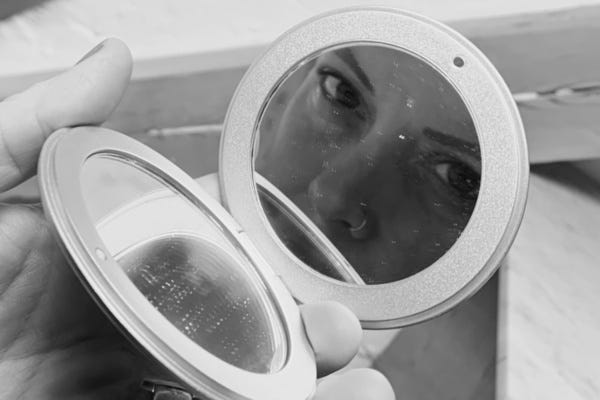Why my actions matter
One reason why a transition towards the Ecocene can be tiring is the feeling that nothing matters anyway. It doesn’t matter if I, as an individual, act if no one else does. It can be heartbreaking to watch someone act carelessly while I am trying so hard to do the right thing. Some insights from physics and metaphysics show that yes, they matter.
Insights from physics
Ecosystems and the Earth system are complex systems coupled with the human system. Scientific findings increasingly show the complex relationships between humans and non-humans in this Earth system. To be accurate, we live in a complex cognitive system.
Complex systems are stochastic. That means that the outcome of human interventions can not be predicted, as a single intervention can lead to many different results within the system. Instead, the overall state of a system represents an energetically favorable state composed of the nature and properties of relationships between other elements within the system. For example, the atoms in a crystal bond in an angle that feels comfortable to them.
Complex systems are emerging. That means that the state of the system as a whole is the result of an emerging process of self-organization across all structural hierarchies. By changing the nature and pattern of relationships within the system, there are transformative effects on the state of the whole system.
Cognitive systems are comprised of self-conscious elements. That’s us. Humans. The presence of self-conscious elements in the system means that subjectivity can shape the system .
The key takeaway from these insights is that our relationships define the state of the system. And as a conscious being, I can choose how these relationships play out: are they exploitive or reciprocal, in competition or cooperation, genuine and honest.
Insights from meta-physics
I like to think of myself as a skeptic of psycho-spiritual and the last to hop on to the new age wagon. Yet, I have found some of these ideas beneficial for navigating systems change and being a motivational force when nihilism takes over my mind.
Rupert Sheldrake is an English biologist who proposed the concept of morphic resonance. One thing upfront: his ideas, of course, lack mainstream acceptance, and his theories are considered pseudoscience. In an article in Scientific American, Rupert sums up morphic resonance as follows:
“Morphic resonance is the influence of previous activity structures on subsequent similar structures of activity organized by morphic fields. It enables memories to pass across both space and time from the past. The greater the similarity, the greater the influence of morphic resonance. What this means is that all self-organizing systems, such as molecules, crystals, cells, plants, animals, and animal societies, have a collective memory on which each individual draws and to which it contributes. In its most general sense, this hypothesis implies that the so-called laws of nature are more like habits.”
Everything in the world behaves more like habits than laws. And these habits get passed on by the morphic field. Memory then is not a function of matter but of time.
The theoretical physicist Lee Smolin came up with a similar idea called “the principle of precedence.” He draws on quantum mechanics and postulates that
“laws of quantum evolution arise from a principle of precedence, according to which the outcome of a measurement on a quantum system is selected randomly from the ensemble of outcomes of previous instances of the same measurement on the same quantum system. This implies that dynamical laws for quantum systems can evolve as the universe evolves because new precedents are generated by the formation of new entangled states.”
A less scientific but trendy book by Andrew Cohen takes it a step further and argues that an evolutionary impulse in the universe drives us to create because we have the power of choice. He urges us to become so conscious that we can make choices that move us in an evolutionary direction.
“When a free agency, the greatest gift of the evolved human, is liberated from unconscious and habitual patterns and becomes identified with a higher or cosmic will, the individual becomes a conscious agent of evolution.”
To the degree to which we change biological, psychological, and cultural habits within ourselves, we become a powerful agent for conscious evolution. If we are part of a greater whole and evolve in a specific direction, then what we do, think, and feel is part of the morphic, evolutionary field and part of the future. And suddenly, everything we do matters.
Reflections
I describe above physical and metaphysical explanations that undermine my fractal cosmology: what happens on a small scale also happens on a large scale. Through this cosmology, my actions feel mostly incredibly meaningful to me. At the same time, I am well aware that I might be wrong, that I only searched for those insights to confirm my already existing cosmology. Yet, even if I am wrong, I enjoy my life so much more than if I thought that my actions only mattered if I had the means and scale of Elon Musk.
While aiming for the truth, a fractal cosmology prioritizes what is beautiful. And I think this is an essential change - from prioritizing truth to prioritizing beauty (without neglecting truth, of course)- that we need for the Ecocene. But more about that another time.
Warmly,
Jes






